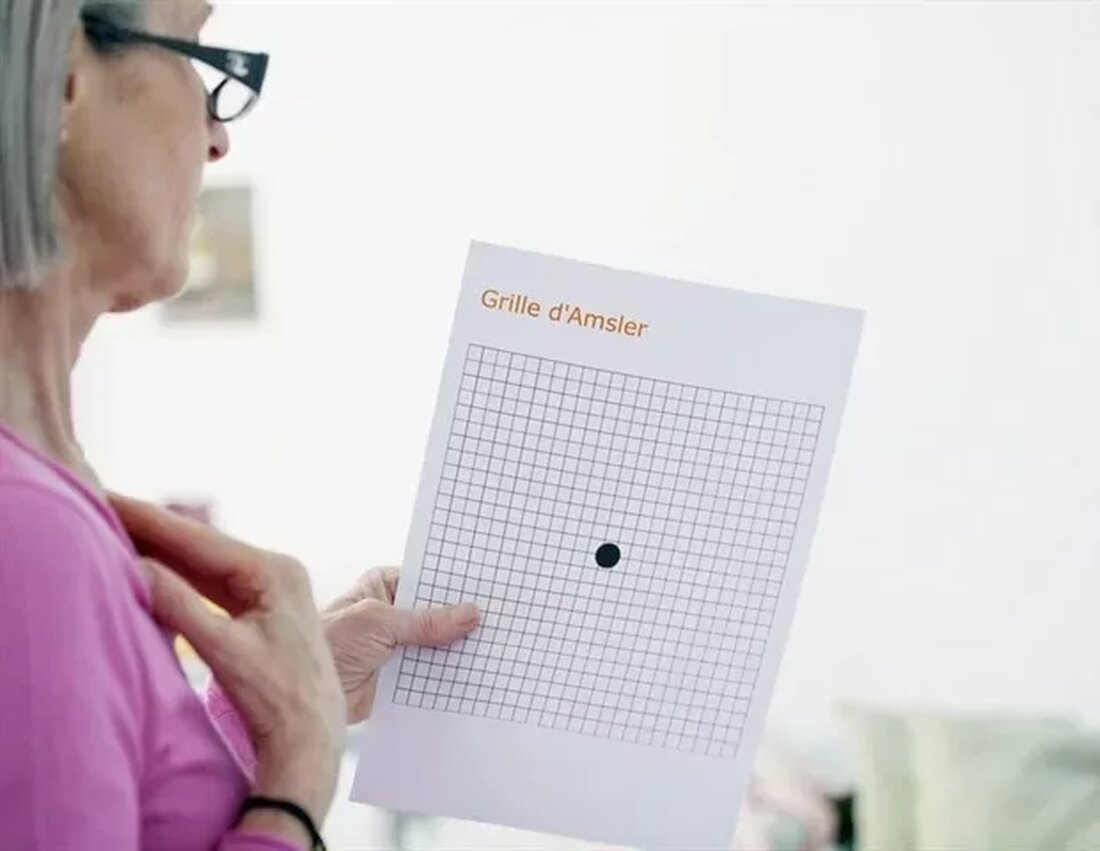New Study Confirms: Dietary Supplements Reduce Risk of Age-Related Macular Degeneration (AMD) - The location would not be relevant in this case as it is general information.
The Importance of Supplements for Age-Related Macular Degeneration Age is a leading cause of age-related macular degeneration (AMD), which often causes blindness in older Americans. The Age-Related Eye Disease Studies (AREDS and AREDS2) have shown that nutritional supplements can slow the progression of AMD. A new study that analyzed 10 years of AREDS2 data now confirms the effectiveness of the AREDS2 formula in reducing the risk of AMD and lung disease. The original AREDS study was initiated in 1996 and showed that a specific dietary supplement (500 mg of vitamin C, 400 international units of vitamin E, 2 mg of copper, 80 mg of zinc, and 15 mg...

New Study Confirms: Dietary Supplements Reduce Risk of Age-Related Macular Degeneration (AMD) - The location would not be relevant in this case as it is general information.
The importance of nutritional supplements for age-related macular degeneration
Age is a leading cause of age-related macular degeneration (AMD), which often causes blindness in older Americans. The Age-Related Eye Disease Studies (AREDS and AREDS2) have shown that nutritional supplements can slow the progression of AMD. A new study that analyzed 10 years of AREDS2 data now confirms the effectiveness of the AREDS2 formula in reducing the risk of AMD and lung disease.
The original AREDS study was initiated in 1996 and showed that a specific nutritional supplement (500 mg of vitamin C, 400 international units of vitamin E, 2 mg of copper, 80 mg of zinc, and 15 mg of beta-carotene) can significantly slow the progression of AMD from moderate to late. However, two simultaneous studies found that smokers who took beta-carotene had a significantly higher risk of lung cancer than expected.
To improve the safety of the supplement, the AREDS2 study replaced beta-carotene with the antioxidants lutein and zeaxanthin. This decision was confirmed by 10 years of continued studies showing that the new formula is not only safer but also more effective at slowing the progression of AMD. The risks of lung cancer are significantly lower with the new formula. Emily Chew, M.D., chief of the Division of Epidemiology and Clinical Applications at the National Eye Institute (NEI) and lead author of the study, confirms the results: "Our 10-year data show that the new formula is not only safer, but also more effective in slowing the progression of AMD."
AMD is a degenerative disease of the retina, the light-sensitive tissue at the back of the eye. The progressive loss of retinal cells in the macula, the part of the retina that provides clear central vision, ultimately leads to blindness. Treatment can slow or reverse vision loss, but there is no cure for AMD.
AREDS2 study: Lutein and zeaxanthin as replacements for beta-carotene
The AREDS2 study began in 2006 and compared the effects of taking beta-carotene with a formula containing 10 mg of lutein and 2 mg of zeaxanthin. Lutein and zeaxanthin, like beta-carotene, are antioxidants that act in the retina. The participants who took beta-carotene were either non-smokers or had quit smoking.
After the five-year AREDS2 trial ended, Chew concluded that lutein and zeaxanthin did not increase the risk of lung cancer and that the new formula may reduce the risk of AMD by about 26%. All participants were switched to the final formula containing lutein and zeaxanthin instead of beta-carotene after the study was completed.
Long-term study confirms results
In a new study, 3,883 of the original 4,203 AREDS2 participants were followed for an additional five years after the AREDS2 study concluded in 2011. It was recorded whether their AMD had progressed to late disease and whether they had been diagnosed with lung cancer. Although all participants switched to the lutein and zeaxanthin formula after the study ended, the long-term study continued to show that beta-carotene almost doubled the risk of lung cancer in people who had ever smoked. There was no increased risk of lung cancer in those who received lutein and zeaxanthin. Additionally, participants who initially received lutein and zeaxanthin had an additional 20% reduced risk of developing advanced AMD after 10 years compared to those who initially received beta-carotene.
conclusion
These results confirm that switching from beta-carotene to lutein and zeaxanthin was the right decision. Dietary supplements can slow the progression of AMD and reduce the risk of lung cancer. However, it is important to note that supplements do not provide a cure for AMD. AMD patients should consult their ophthalmologist and work with them to develop a treatment plan.
Source: National Institutes of Health

 Suche
Suche
 Mein Konto
Mein Konto
